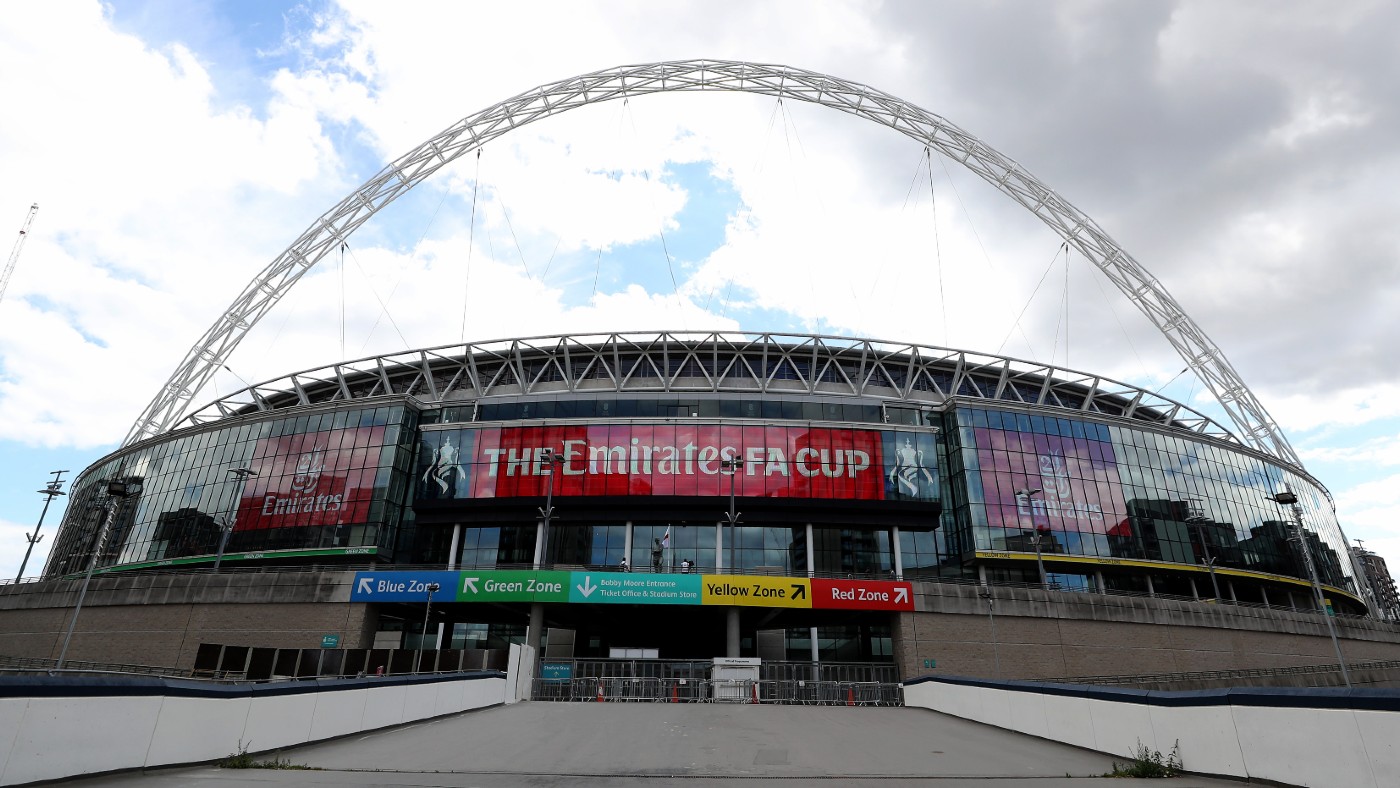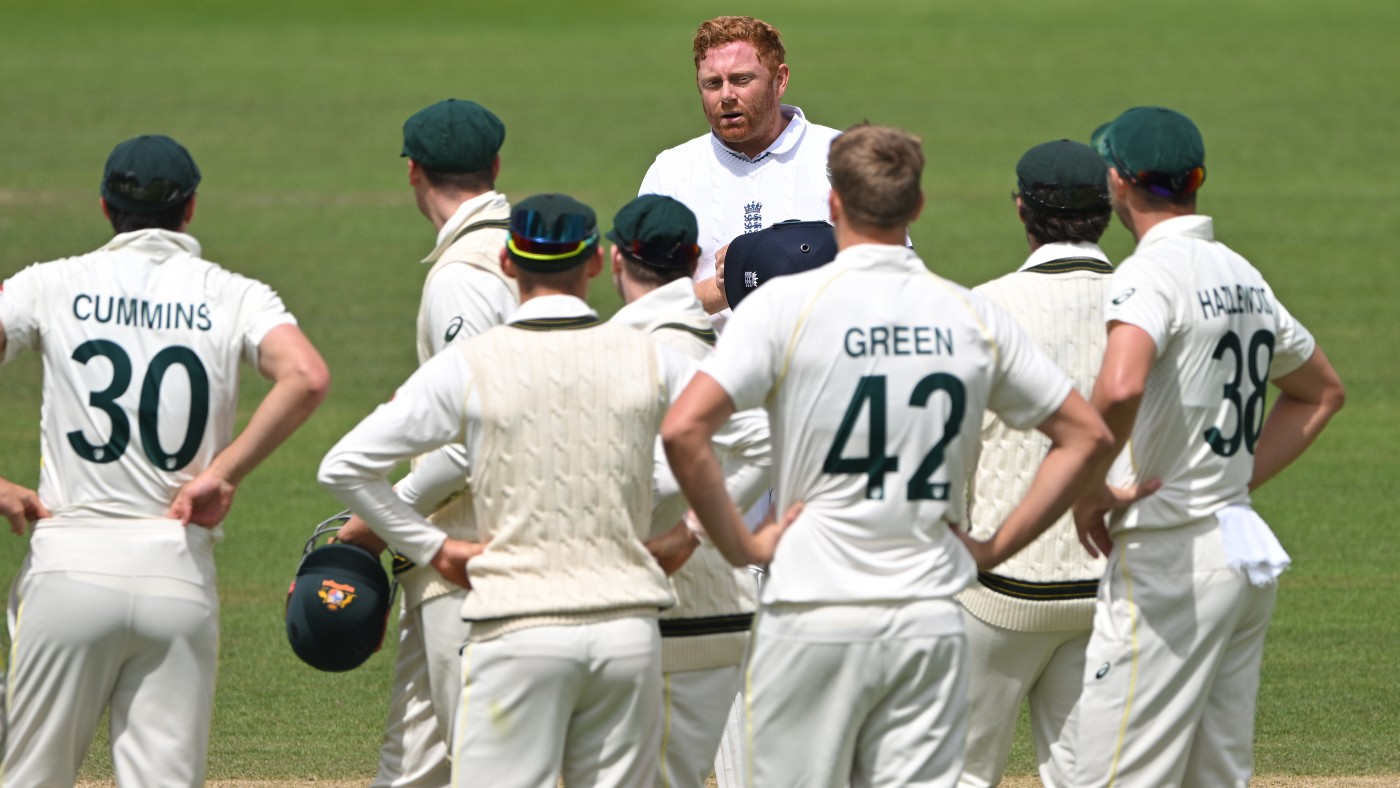Should the FA Cup semi-finals be moved from Wembley?
Man City and Liverpool fans face travel chaos on semi-final weekend

A free daily email with the biggest news stories of the day – and the best features from TheWeek.com
You are now subscribed
Your newsletter sign-up was successful
When Manchester City and Liverpool supporters travel south for their FA Cup semi-final clash at Easter don’t expect the trains to be packed full of sky blue and red. That’s because on the weekend of the semi-finals, 16-17 April, there will be no direct trains to London from the north west due to planned engineering works.
Supporters’ groups from both clubs have “united” in their condemnation of the “shambolic” travel arrangements, The Guardian reported. Trains from Liverpool Lime Street will terminate at Rugby and services from Manchester Piccadilly will terminate at Milton Keynes. This means fans will be forced to “either travel by road, air or contemplate circuitous cross-country rail journeys that make day-return trips virtually impossible”.
The English Football Association said it will work with the clubs, Network Rail and National Express to “find a solution so that supporters of both teams are able to travel to and from the fixture, with as minimal disruption as possible”. But to “make matters worse”, said the Daily Mail, the FA were “warned of the potential for travel chaos around next month’s FA Cup semi-finals in September”.
The Week
Escape your echo chamber. Get the facts behind the news, plus analysis from multiple perspectives.

Sign up for The Week's Free Newsletters
From our morning news briefing to a weekly Good News Newsletter, get the best of The Week delivered directly to your inbox.
From our morning news briefing to a weekly Good News Newsletter, get the best of The Week delivered directly to your inbox.
#ChangeTheVenue
Fans of the teams in the other semi-final, Chelsea and Crystal Palace, won’t have many issues travelling across London to get to Wembley for their fixture. However, Liverpool and City supporters’ groups said it “makes no sense” for Wembley to be hosting the game when there’s going to be major travel disruption.
In a joint statement, Liverpool supporters’ group Spirit of Shankly and City’s We are 1894 said there has been “zero consideration” given to fans travelling for the semi-final and they have urged the FA to “#ChangeTheVenue”. The statement said: “City and Liverpool are less than 40 miles apart and there are plenty of grounds big enough far closer than Wembley to stage such a prestigious game.”
The FA confirmed that the location of the fixture would not be moved from Wembley, but fans “continue to call for a switch to a more suitable venue”, the Daily Mail said. The Spirit of Shankly group wants the match to be played at Manchester United’s Old Trafford stadium, even though United are due to host Norwich in the Premier League that same weekend.
How long have the semi-finals been held at Wembley?
Getting to play at the “iconic” Wembley Stadium – England’s “Home of Football” – is seen as “the pinnacle for many players”, said Goal. The famous ground was traditionally where the FA Cup final was played, but the Football Association expanded its use and in recent years “it hasn’t been such an exclusive venue”.
A free daily email with the biggest news stories of the day – and the best features from TheWeek.com
The first FA Cup semi-final to be played at Wembley was in 1991 when Tottenham faced north London rivals Arsenal. Two years later, Sheffield Wednesday played Sheffield United in a Steel City derby semi-final.
In 2003 the FA then announced that when the ��new” Wembley was completed the semi-finals would be permanently held there from the 2007-2008 season. This “led to some discontent”, Goal added.
‘A financial necessity’
Wembley’s capacity of nearly 90,000 means “many more fans have the opportunity to see their team in the semi-finals now than when the matches were played at grounds such as Anfield, Villa Park and Old Trafford”, FA spokesman Matt Phillips told The Guardian in 2011. “It’s purpose built for major events, particularly major football events.”
Nick Barron, who was a spokesperson for the FA in 2003, said it was a “financial necessity” for the semi-finals to be played at Wembley, Goal reported.
“There will be traditionalists upset by the idea of the semi-finals being at Wembley,” Barron said in 2003. “So will some fans of clubs who would have to travel a long way to London and we appreciate that it’s not necessarily an ideal situation. However, it’s a financial necessity in order to pay for the new stadium. And the upside is that not only will more fans be able to watch the games, but they will be doing so in the best stadium in the world.”
Mike Starling is the former digital features editor at The Week. He started his career in 2001 in Gloucestershire as a sports reporter and sub-editor and has held various roles as a writer and editor at news, travel and B2B publications. He has spoken at a number of sports business conferences and also worked as a consultant creating sports travel content for tourism boards. International experience includes spells living and working in Dubai, UAE; Brisbane, Australia; and Beirut, Lebanon.
-
 How the FCC’s ‘equal time’ rule works
How the FCC’s ‘equal time’ rule worksIn the Spotlight The law is at the heart of the Colbert-CBS conflict
-
 What is the endgame in the DHS shutdown?
What is the endgame in the DHS shutdown?Today’s Big Question Democrats want to rein in ICE’s immigration crackdown
-
 ‘Poor time management isn’t just an inconvenience’
‘Poor time management isn’t just an inconvenience’Instant Opinion Opinion, comment and editorials of the day
-
 Lionesses will have regrets but their legacy can be ‘incredible’
Lionesses will have regrets but their legacy can be ‘incredible’feature England stars return home after heartbreaking Women’s World Cup final loss to Spain
-
 ‘Fairytale’ for Wiegman as Lionesses roar into first Women’s World Cup final
‘Fairytale’ for Wiegman as Lionesses roar into first Women’s World Cup finalfeature England will face Spain on Sunday after spoiling the Matildas’s party in Sydney
-
 2023-2024 Premier League predictions: champions, relegation and golden boot
2023-2024 Premier League predictions: champions, relegation and golden bootfeature A look at the top flight talking points and pundit picks for the new season
-
 Lionesses dig deep after Lauren James’s ‘Beckham-esque’ red card
Lionesses dig deep after Lauren James’s ‘Beckham-esque’ red cardfeature England reach the Women’s World Cup quarter-finals after a 4-2 win on penalties against Nigeria
-
 The Ashes: can England mount a glorious comeback?
The Ashes: can England mount a glorious comeback?feature ‘Herculean’ task follows ugly scenes at controversial second test
-
 Antonio Conte leaves Tottenham after ‘extraordinary’ rant at players
Antonio Conte leaves Tottenham after ‘extraordinary’ rant at playersfeature After another year without a trophy, Spurs are now searching for a new manager
-
 ‘Captain fantastic’: Harry Kane’s most memorable England goals
‘Captain fantastic’: Harry Kane’s most memorable England goalsfeature Kane has overtaken Wayne Rooney as the Three Lions’s all-time leading goalscorer
-
 Liverpool 7 Man Utd 0: ‘welcome to Jürgen Klopp’s Liverpool 2.0’
Liverpool 7 Man Utd 0: ‘welcome to Jürgen Klopp’s Liverpool 2.0’feature Anfield’s ‘new front three’ were on fire in the humbling of their bitter rivals